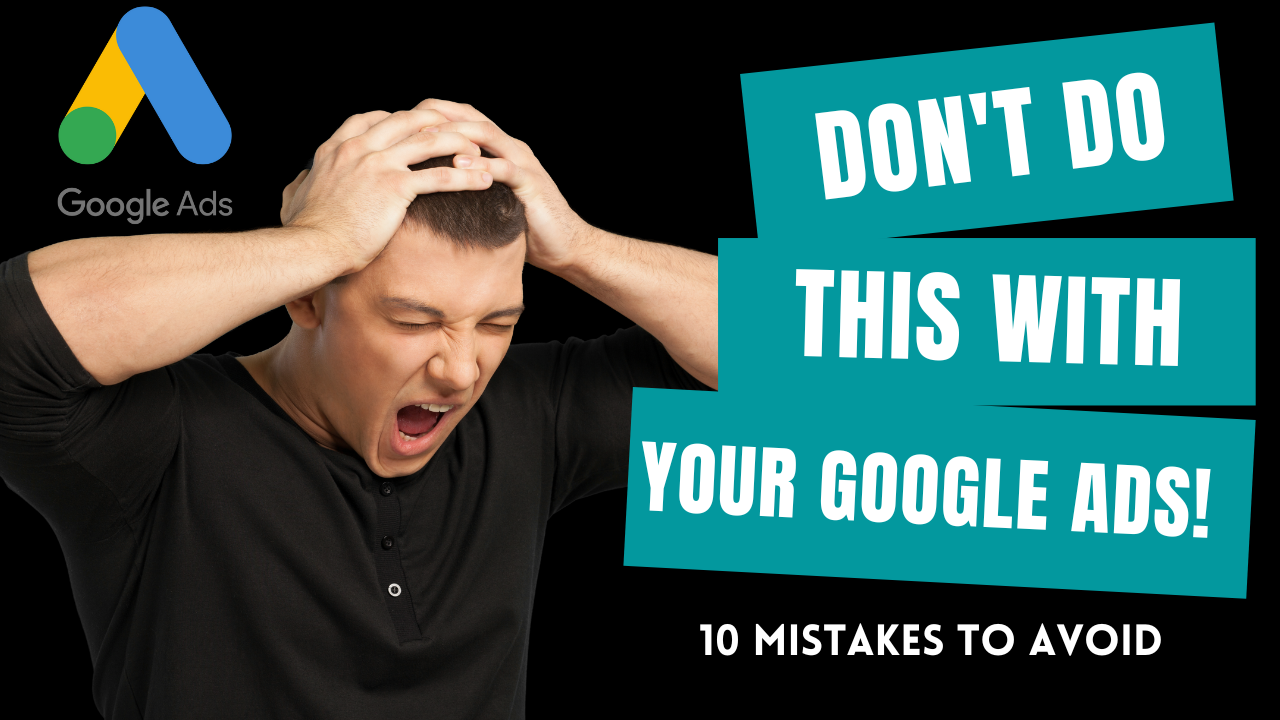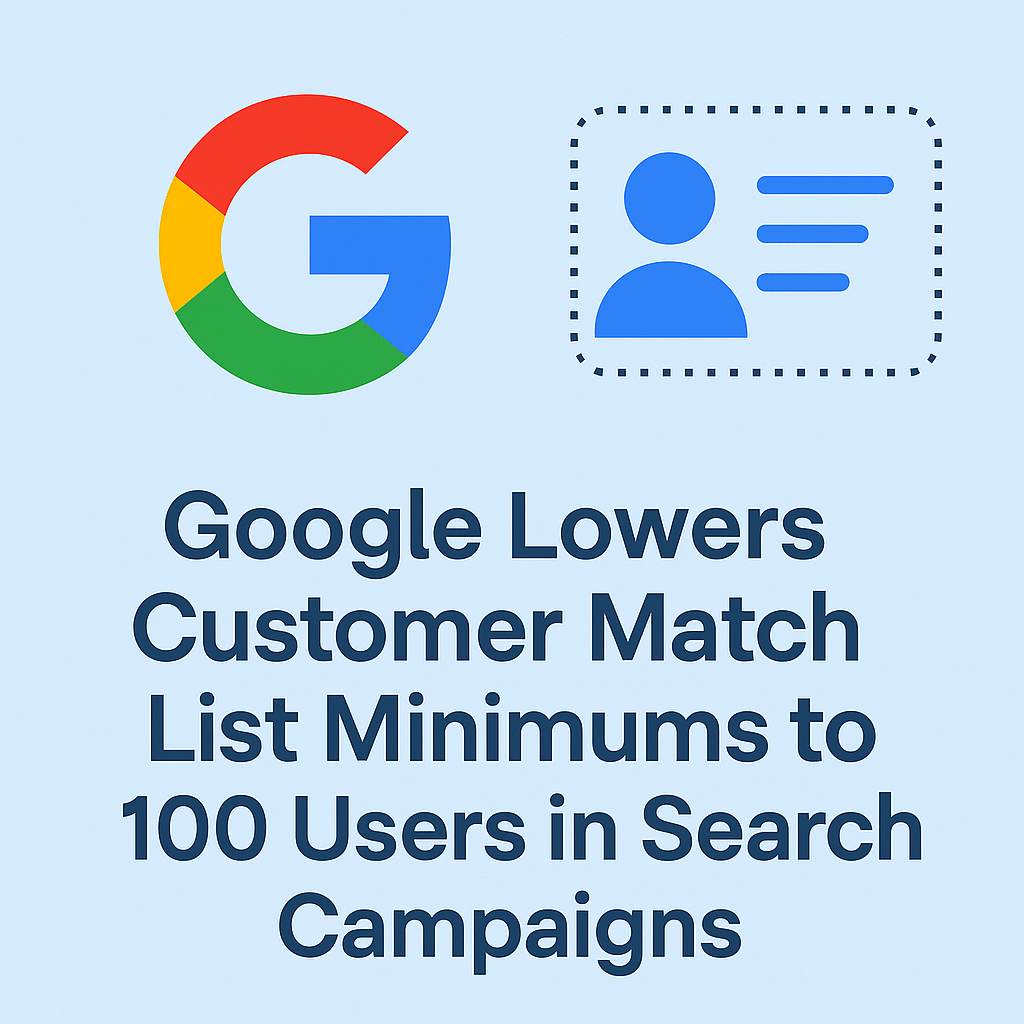Mistake #1: Not Using Conversion Tracking
The first and most crucial mistake to avoid is not using conversion tracking. If you don’t have a properly set up conversion action in your Google Ads account, you’re missing out on the ability to measure the return on your advertising investment. Whether you’re tracking lead submissions or sales, it’s essential to have conversion tracking in place so you can optimise your campaigns for the desired outcome.
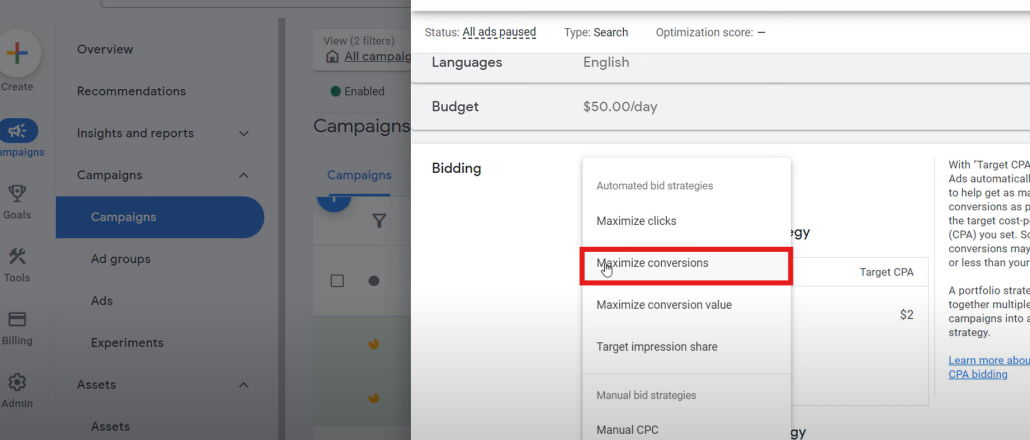
Mistake #2: Not Using Smart Bidding Strategies
The second mistake to avoid is not utilising smart bidding strategies. Regardless of the campaign you’re running, you should be using a smart bidding strategy and optimising for conversions. This allows Google’s algorithms to automatically adjust your bids to achieve your desired goals such as maximising conversions or maximising conversion value.
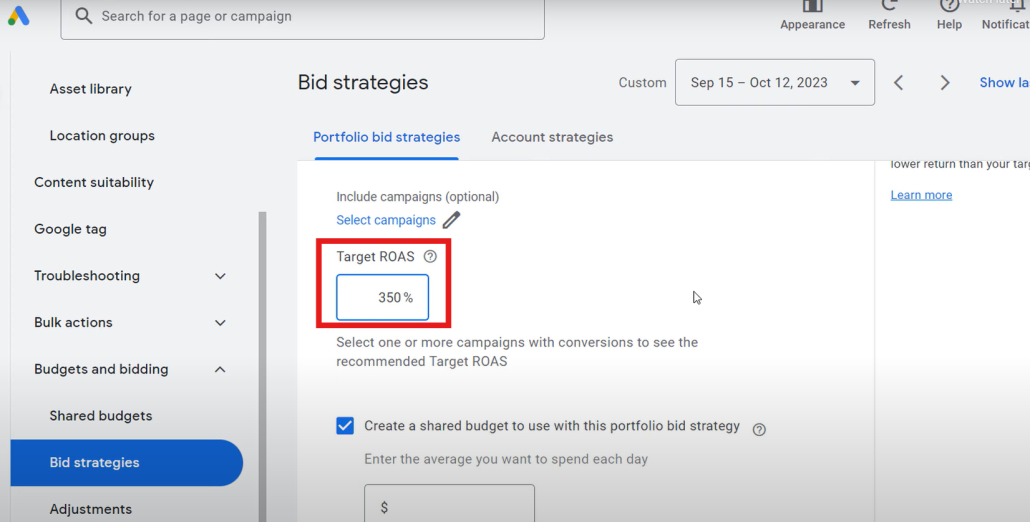
Mistake #3: Unorganised Ad Groups
The third mistake is using unorganised ad groups. It’s crucial to structure your ad groups around tightly themed topics or products. Avoid putting all your keywords into a single ad group or having a small number of ad groups that aren’t closely aligned with your target audience. Instead, create ad groups based on the specific landing pages you’re sending traffic to, ensuring your ads and keywords are highly relevant to the user’s search intent.
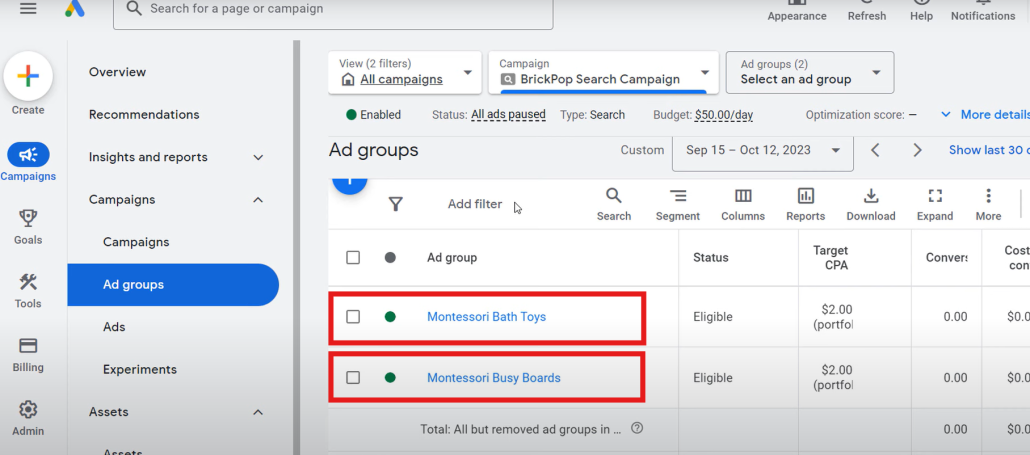
Mistake #4: Not Using Cost Controls
The fourth mistake, especially for lower-budget advertisers, is not using cost controls. In addition to setting a daily budget for your campaign, you can utilise portfolio bid strategies to share a budget across multiple campaigns. This can help you maximise your results within a specific budget. Additionally, you can set maximum bid limits to maintain control over your cost-per-click, especially when you’re first starting a campaign.

Mistake #5: Not Testing Keyword Match Types
The fifth mistake is not testing different keyword match types. When adding keywords to your ad groups, you should experiment with broad match, phrase match and exact match types. Test each match type separately, evaluating the results before deciding which one to use. Avoid running all three match types in the same ad group, as this can lead to confusion and suboptimal performance.
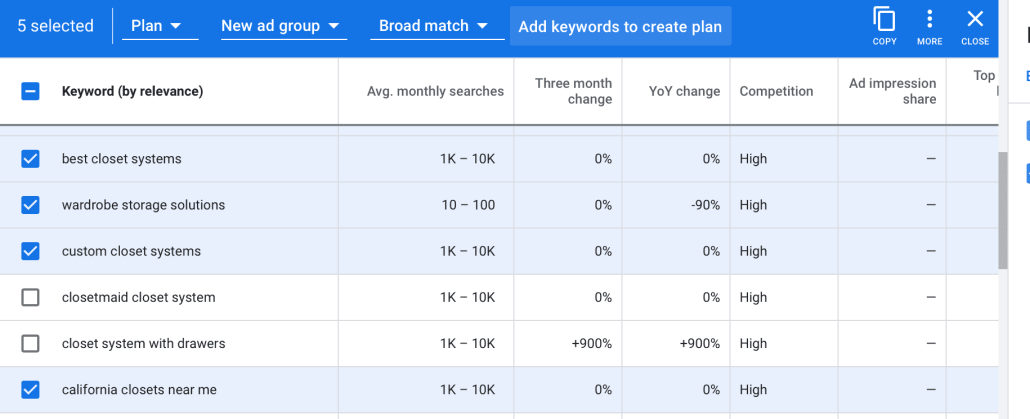
Mistake #6: Not Adding Negative Keywords
The sixth mistake is not adding negative keywords. Regularly review the search terms report to identify irrelevant terms that are triggering your ads. Add these terms as negative keywords to prevent your ads from appearing for searches that are unlikely to convert.

Mistake #7: Only Creating One Ad per Ad Group
The seventh mistake is only creating a single ad per ad group. To optimise your ad performance, you should always be testing different ad variations. Create multiple closely relevant ads and rotate them within the same ad group. Focus on testing different emotional appeals or unique selling points to see which resonates best with your target audience.

Mistake #8: Not Testing Landing Pages
The eighth mistake is not testing your landing pages. Just as you should test different ad variations, it’s essential to A/B test your landing page designs and messaging. Create multiple landing page versions with unique content and layouts and monitor their performance to identify the most effective approach.

Mistake #9: Limited or No Ad Assets
The ninth mistake is not utilising ad assets to their full potential. Take advantage of the various ad extensions and assets available such as callouts, sitelinks and phone numbers. These additional elements can enhance the visibility and relevance of your ads, improving their overall performance.

Mistake #10: Not Using Remarketing
The tenth and final mistake is not using remarketing. Remarketing campaigns allow you to re-engage with users who have previously visited your website, increasing the likelihood of conversion. Create remarketing audiences based on your website visitors, email lists and other customer data to target these potential customers more effectively.

By avoiding these 10 common Google Ads mistakes, you’ll be well on your way to building and optimising successful campaigns that drive meaningful results for your business. Remember, continuous testing, optimisation and a data-driven approach are key to achieving the best possible return on your advertising investment.



